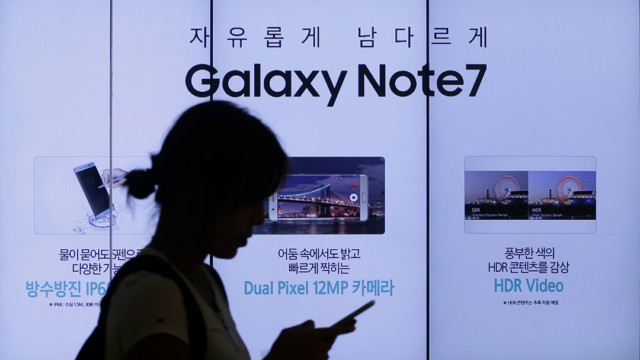Samsung Electronics says flaws in the design and production of batteries used in its Galaxy Note 7 smartphone, not its hardware or software, made it prone to catch fire.
CGTN’s Shane Hahm reports from Seoul.Follow Shane Hahm on Twitter @ShaneHahm

Samsung said Monday that it was responsible for not ensuring the design specifications given to its suppliers were failsafe but believed its investigation into the problem would help the entire industry counter overheating risks with lithium batteries. Analysts questioned if the world’s largest smartphone maker had really gotten to the bottom of the problem.
The South Korean company delayed the launch of its next Galaxy phone —the Galaxy S8, which usually would come in February. It also announced tighter quality controls and more rigorous testing to ensure safety.
During a two-hour press conference livestreamed in English, Chinese and Korean, Samsung said tests of more than 200,000 phones and 30,000 batteries showed different problems with each of the two kinds of batteries used in the Note 7.
Some experts had speculated that the phones’ ultra-thin design or water-resistant features could have made them prone to overheat. Koh Dong-jin, president of Samsung’s mobile division, said the investigation found no such problems.
The Galaxy Note 7 featured one of the biggest battery capacities so far for smartphones at 3,500 mAh, or milliampere hour, which gave it the highest energy density of all Samsung’s devices. However, Koh said Samsung and outside inspectors found no evidence that the high energy density alone was to blame.
Samsung introduced the Note 7 on Aug. 2 and weeks later recalled the first batch after reports emerged that the phones were overheating and in some cases exploding. After replacement phones also started catching fire, aviation authorities banned them on flights and the company dropped the product for good. It has estimated the quality control fiasco will cost it $5.3 billion through early this year.
The Note 7 isn’t the only gadget to catch fire thanks to lithium battery problems, which have afflicted everything from laptops to Tesla cars to Boeing’s 787 jetliner. Manufacturers like the batteries because they weigh less and pack much more energy into the same space than other types of batteries.
But rechargeable lithium batteries like those used in smartphones are more susceptible to overheating than other types of batteries if they are exposed to high temperatures, are damaged or have manufacturing flaws.
To avoid further problems, Samsung said it was introducing an 8-point battery safety check with more intense durability tests; a new test on accelerated usage and a charge and discharge test. The tighter safety measures will be implemented in “every element of the company’s devices,” it said, including overall design and materials used.
Samsung said it also will seek advice on battery safety and innovation from a group of battery experts.
The company has recalled 3.06 million Note 7 phones. About four percent, or 120,000 units, of the recalled Galaxy Note 7s have not been returned.
Story by The Associated Press
 CGTN America
CGTN America A woman walks by an advertisement of Samsung Electronics’ Galaxy Note 7 smartphone at the company’s showroom in Seoul, South Korea. (AP Photo/Ahn Young-joon, File)
A woman walks by an advertisement of Samsung Electronics’ Galaxy Note 7 smartphone at the company’s showroom in Seoul, South Korea. (AP Photo/Ahn Young-joon, File)
